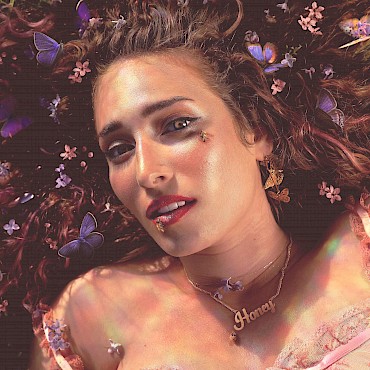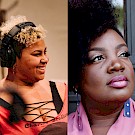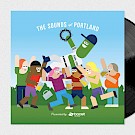 Back in March of this year, a series of events launched us into what we now know to be one of the most trying years we’ve collectively experienced as a city. We’ve gone through waves of claustrophobia with shelter-in-place orders, mandatory masks, and poor air quality from wildfires. We’ve witnessed extensive and consistent police brutality as we watched the video of George Floyd’s murder, and as protesters at home in Portland have been tear gassed, flash banged and tackled night after night.
Back in March of this year, a series of events launched us into what we now know to be one of the most trying years we’ve collectively experienced as a city. We’ve gone through waves of claustrophobia with shelter-in-place orders, mandatory masks, and poor air quality from wildfires. We’ve witnessed extensive and consistent police brutality as we watched the video of George Floyd’s murder, and as protesters at home in Portland have been tear gassed, flash banged and tackled night after night.
This all began about a month after Moorea Masa had finished recording her new album. Needless to say, the release in May didn’t quite go according to plan. In fact, it didn’t happen at all.
Her summer schedule was packed with shows and festivals nationwide, all of which were canceled due to Covid. When the police murdered George Floyd, her calendar filled up again, but this time with commitments to serve three meals a day to help feed people on the front lines. The motivation she had for promoting her new music was redirected to addressing the immediate physical and mental needs of the people suffering right here in our city.
George Floyd’s murder was a turning point in our collective awareness of Portland’s racial disparities, but as most of us have learned by now, these inequities and the suffering they’ve caused did not begin in 2020.
 Masa’s mother is a Black, queer woman who was adopted by a white family. She has struggled with mental illness for most of her life, and like the rest of the BIPOC community, she never had much access to therapeutic resources that were capable of the understanding necessary for honest healing.
Masa’s mother is a Black, queer woman who was adopted by a white family. She has struggled with mental illness for most of her life, and like the rest of the BIPOC community, she never had much access to therapeutic resources that were capable of the understanding necessary for honest healing.
In her new single, “Honey,” Masa sings, “Not used to feeling safe, I’m comfortable in our chaos. I'm used to doubting a love that feels stable.”
Because of her mother’s mental instabilities, at best, Masa’s relationship with her has not been easy; and at its worst, it has been mentally and physically threatening.
The individuals who fill parental roles in our life are the people we look to as guides and mentors for healing and support. They shape how we relate to the world in so many ways. So when those figures aren’t capable of that kind of leadership, we really only have two options: Succumb to fear and uncertainty, or figure out how to carve out our own path and find different resources to learn from along the way.
Masa has ultimately taken the latter route. Fear can debilitate, but it can also help us learn how to build a safe environment for ourselves. For Masa’s relationship with her mother that has meant drawing boundaries, even when it feels lonely, harsh and uncertain.
Reflecting on this in her new single, Masa sings: “Don’t take much to make me happy. I’m not asking for a lot. I’m just trying to set these boundaries. But you kept running after me when all I need is sorry.”
It takes a village to raise this kind of self-awareness and perspective. That’s where wellness resources like therapy, massage and acupuncture come in. For the BIPOC community, though, these resources are few and far between. Masa can’t help but wonder how her mother’s mental health might have been different if she had people to look to who actually understood what she was going through. She’s teamed up with an organization called Radical Rest to help ensure that this lack of access becomes a thing of the past.
 "Honey" single coverRadical Rest is a group of BIPOC wellness practitioners offering therapeutic services to its community. From September 20 to 27, it is offering services for free. Tune in to Masa’s full band live stream on September 25, presented by Musicians in Solidarity. Not only will you get to experience the healing therapy of her music, including her new single “Honey,” you will also have the opportunity to contribute to Radical Rest as the proceeds of the live stream will go to the practitioners.
"Honey" single coverRadical Rest is a group of BIPOC wellness practitioners offering therapeutic services to its community. From September 20 to 27, it is offering services for free. Tune in to Masa’s full band live stream on September 25, presented by Musicians in Solidarity. Not only will you get to experience the healing therapy of her music, including her new single “Honey,” you will also have the opportunity to contribute to Radical Rest as the proceeds of the live stream will go to the practitioners.
A warning: Once you hear the single, you will inevitably want to hear the rest of the album. As Masa continues to maneuver with grace through the ever-changing social, political and environmental climate, she will release songs from the album one at a time. Until then, check out the video below to curb your musical appetite. The video, directed by Blossom, is a collaboration of some great local artists, most of whom are queer, BIPOC, immigrant or first-generation womxn.








